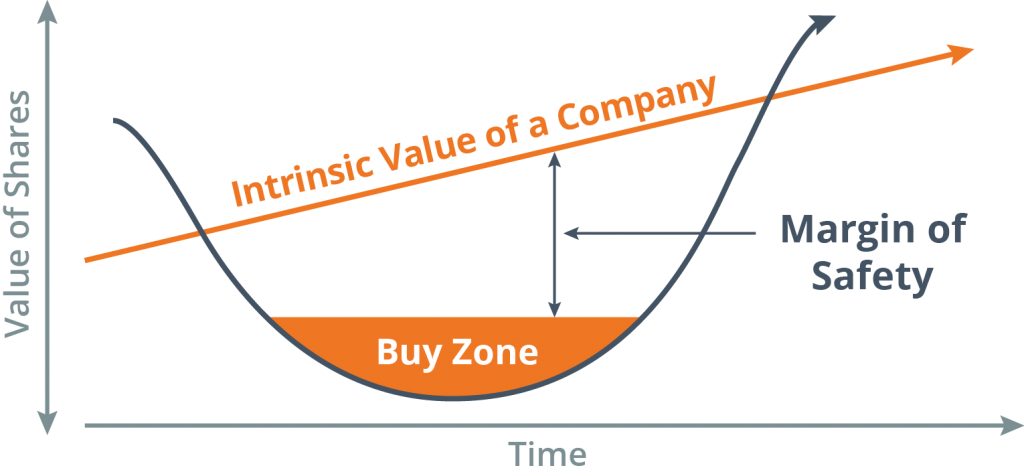If you are just getting started with stock trading and investment, one of the first things you need to learn about is the strategies you can use.
Two of the more popular investment strategies around are value or regular value investing and deep value investing.
In this article, you’ll get an overview of the difference between deep value and regular value investing.
What’s value investing?
Value investing follows the popular investment saying, “buy low, sell high.” However, with this investment strategy, you need to determine the lowest value of the stock of a certain company you are planning to invest in.
Buy low, sell high may seem like a simple strategy, but there’s more to it than meets the eye. To achieve that simple goal, you have to put in a lot of work scrutinizing each company you want to invest in.
Listed here are some of the legwork that you need to do in value investing.
Determining intrinsic value
Investors vary in how they determine intrinsic value. Some focus on the projected cash flow of a company, while others pay more attention to a business’s assets and liabilities.
There is no right or wrong approach here. Ultimately, you’ll need to decide what works best for you, considering your preferences and how long you plan on keeping the stocks of a particular company.
Investment timeline
Time is critical for value investors. Specifically, they wait patiently until the time is right to make a move. That includes waiting for the value of a stock to reach its buy-in point.
As such, it’s not unusual for these investors to make no investment moves for a long time.
Value investors rarely sell their assets because they usually bide their time until they appreciate enough to pay handsomely.
Going against the grain
If you want to be a value investor, you must remain steadfast in your research and objectives. Often, that means going against the grain.
For instance, when most investors overvalue certain stocks, a value investor will shy away from buying those.
Conversely, if most investors are veering away from some stocks, a value investor will closely monitor those and check if those are viable investment options.
Take note that value investors don’t simply hold to a contrarian view. Instead, they carefully scrutinize stocks and base their decisions upon their research and not what other investors think.
Avoiding margin calls
A value investor remains steadfast, even during periods of loss.
Instead of succumbing to the fear of short-term losses, he does not sell his stocks, knowing full well that his assets will recover, and he can end up losing more if he makes margin calls.
What’s Deep Value Investing?
Warren Buffett, Benjamin Graham, Howard Marks, and Seth Klarman are just among the more popular proponents of deep value investment. But what exactly is deep value investment?
Like value investors, deep value investors follow the adage of buying low, selling high. However, they take this saying a notch higher.
In deep value investing, you purchase bonds or stocks that are below a conservative investor’s net worth evaluation.
While a value investor often chooses undervalued stocks, a deep value investor will often select severely undervalued stocks, usually from companies that are on the brink of bankruptcy.
For a deep value investor, the market offers plenty of rewards if you are diligent in finding stocks or bonds that have been undervalued by pessimistic investors, so undervalued that even seasoned and larger investors pass up on them.
How do you apply the principles of deep value investing?
1. Avoid following the herd
If you have a low-risk appetite, there’s nothing wrong with doing what other investors are doing. However, following the herd means that you might lose out on opportunities because you just followed what everyone else is doing.
Like value investing, deep value investing is anchored on contrarian belief.
One chief advantage of going against the herd is that you’re competing against fewer investors. In turn, that means that you can avoid drastic price movements.
2. Precision
Deep value investors approach their investments with an objective mindset. To do this, you should cast your subjectivity and focus on a company’s balance sheet. You don’t look too far ahead by envisioning future profitability.
But how do you use a company’s balance sheet to make objective decisions? To do that, you need to scrutinize the company carefully.
And to protect yourself from possible losses, you also need to diversify your investments by getting stocks from different sectors.
3. Reverting to the mean
One of the most important reasons you should avoid stocks from companies that most investors choose is the concept known as mean reversion.
If you invest in a company that everyone wants to get their hands on, you have to prepare for that business’s poor performance.
When a business becomes a market darling, it invites more competitors, making it harder to sustain its good performance.
And conversely, if you choose stocks or bonds from a company that is on the brink of bankruptcy, it is easier for that business to make a quick turnaround. Something like the entry of new management or product improvement can mean a good sum of profit for you.
Simply put, you can profit more by seeking these companies shunned by most investors.
The importance of choosing an investment strategy
As an investor, one of the worst things you can do is to proceed without choosing an investment strategy that works best for you and your investment goals.
By investing without an investment strategy, you can end up losing percentage points. And no matter how small those losses are, those can still add up to a sizeable amount of money.
Before investing in stocks or bonds, study the different strategies and choose one that best fits your goals.


